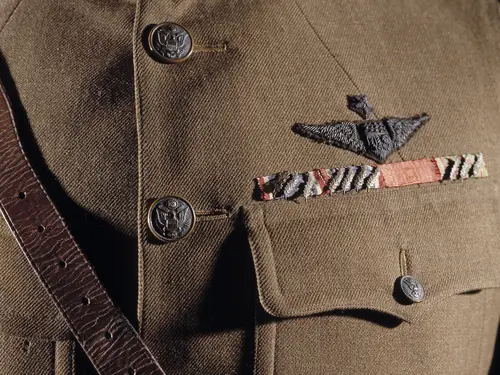
Sharing the Story of the World War I Gallipoli Campaign
Sep 11, 2017
By Peter Jakab
Gallipoli (1981) sets a classic tale of innocence lost in war during the World War I (WWI) Gallipoli Campaign against the Ottoman Empire (modern-day Turkey). One of the few Hollywood movies to illustrate that WWI took place not only on the Western Front in France, Gallipoli tells the story of this major campaign through the experience of several Australian young men who travel halfway around the globe to fight for their country.
Also known as the Dardanelles Campaign, Gallipoli was an unsuccessful attempt by the Allies to control the sea route from Europe to Russia. The campaign began with a failed naval attack by the British and French in early 1915. The failed attack was followed by a land invasion of the Gallipoli Peninsula in April 1915 by the British and French, joined by the Australian and New Zealand Army Corps (ANZAC). Lack of sufficient intelligence and knowledge of the terrain, along with fierce resistance from the Turkish troops, bogged down the invasion. By the year’s end, the decision was made to give up the battle and evacuate the Allied forces. 46,000 Allied and 65,000 Turkish troops were killed.
The costly campaign is the backdrop for this fictional story of Australian boys who enlist with high ideals and a sense of adventure, only to confront the realities of war head on. The film was directed by Peter Weir and stars Mel Gibson, Mark Lee, and Bill Kerr. Gallipoli powerfully and authentically depicts the nature of WWI trench warfare and the sacrifice so many made in this monumental battle.
The film has been criticized for historical inaccuracy. It gives the impression that it was the British chain of command that contributed to errors of judgment resulting in heavy Australian losses. In fact, it was Australian leadership that largely directed the effort at Gallipoli. Nonetheless, the film makes a moving statement about this battle that is central to both Australian and Turkish national identity.
This blog was originally written in 2017 by Peter Jakab to promote "Hollywood Goes to War: World War I on the Big Screen," a film series at the Museum. It was updated in 2025 . You can read the original via the Internet Archive's Wayback Machine.
Related Topics
You may also like

We rely on the generous support of donors, sponsors, members, and other benefactors to share the history and impact of aviation and spaceflight, educate the public, and inspire future generations. With your help, we can continue to preserve and safeguard the world’s most comprehensive collection of artifacts representing the great achievements of flight and space exploration.
Support the Museum
We rely on the generous support of donors, sponsors, members, and other benefactors to share the history and impact of aviation and spaceflight, educate the public, and inspire future generations. With your help, we can continue to preserve and safeguard the world’s most comprehensive collection of artifacts representing the great achievements of flight and space exploration.



